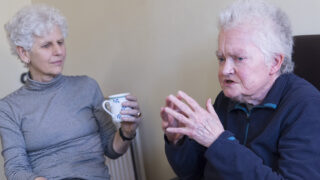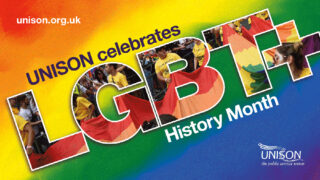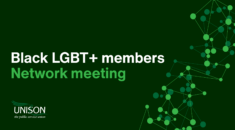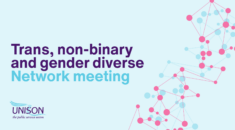Written by Neil and Lucy – co-chairs National LGBT+ committee
The Nordic (Swedish) model for sex work aims to reduce or ‘end’ demand for sex work through a legal framework which criminalises the purchase of sex. But as with many things, making something illegal just pushes it underground.
Norway, Iceland, Canada, Northern Ireland, France, Ireland, and Israel have all adopted the model and sex workers across these nations report that it makes their working conditions more dangerous. In January, Amnesty International Ireland published research which concludes that this law is jeopardising the safety of sex workers in Ireland. The report also points out that penalising ‘brothel-keeping’ poses a risk to the safety of sex workers, as it prevents sex workers from working together for safety.
These are some of the reasons that we are calling on UNISON to end support for the Nordic model.
- It puts sex workers at risk
The Nordic Model calls for a ‘sex buyers’ law, criminalising the act of paying for sex. This puts workers into dangerous situations as clients are scared of being caught. Transactions then take place ‘in the shadows’, with the worker being forced to work underground. They must also work alone, as the law makes it illegal to work with others.
2. It makes it harder for sex workers to earn a living
As client numbers diminish, through fear of being caught, access to income is restricted. Research has shown that 63% of sex workers have experienced a deterioration of their living conditions, more isolation and greater stress. Having less clients means that workers often have to accept less safety and less money for their work
3. It leads to harassment of sex workers by law enforcement
Whilst the Nordic model doesn’t make selling sex illegal, police will relentlessly target them which increases the likelihood of homelessness, trafficking and violence
4. It removes autonomy and the ability to make decisions based on what the worker wants to do, forcing them to think about what they need to do to make ends meet
As clients become fewer and further between, sex workers are placed in the position of having a weaker bargaining position, having to accept clients who they may have been in a position to refuse under other legal models
5. Sex workers groups and health organisations WORLDWIDE are campaigning against it
Sex worker organisations are campaigning for recognition of sex work as work and of their rights as workers.
They want freedom and autonomy over their bodies, and they want safety. Regardless of the reasons that they do sex work, they need to be able to work more safely and be able to organise
By supporting the Nordic model, UNISON is at odds with many worldwide organisations, including Amnesty International, Human Rights Watch, World Health Organisation, Anti-Slavery International, Global Alliance Against Traffic in Women, the Royal College of Nursing and many trade unions in the UK and worldwide. These organisations oppose the Nordic model as it harms the health and safety of people who sell sex.
In 2010 the national women’s conference voted to support the Nordic model – in 2018 the motion to continue to support the Nordic model was lost. At the 2022 Women’s Conference the motion ‘For Safety – end support of the Nordic Model’ was carried, making this policy for the National Women’s Committee.
In essence, we need to recognise
- that sex work is work.
- That we should listen to the voices and concerns of sex workers
UNISON demands rights for workers, and this should be a consistent standard for our campaigning. Whether someone is a sex worker by choice or by necessity, the bottom line is that this is how they earn their money. It’s how they feed their families and keep their lights on.
The agenda for UNISON’s national delegate conference includes Motion 55 – For safety – End support for the Nordic Model. The national LGBT+ committee ask for your support and to vote in favour of this motion.
Sex work is work and sex workers are workers. UNISON should not be supporting the introduction of a law that would make their work more dangerous.









